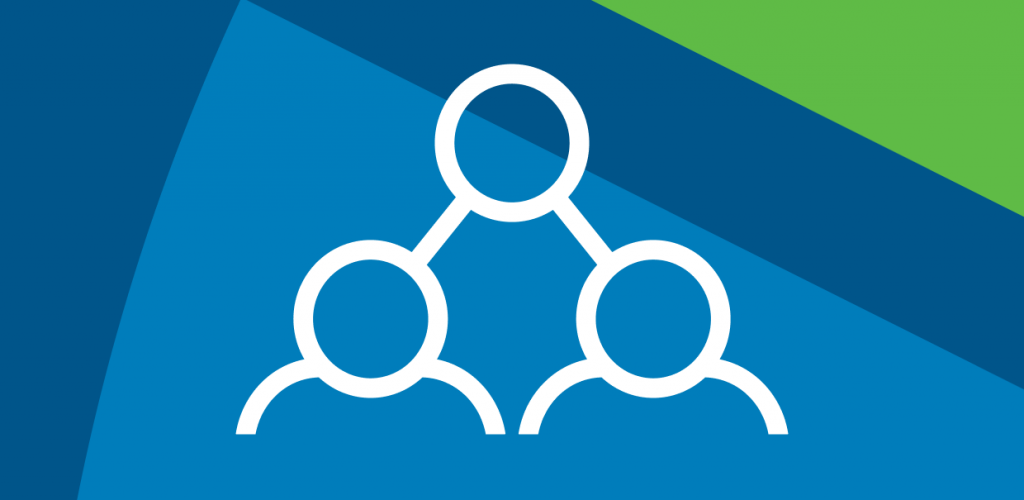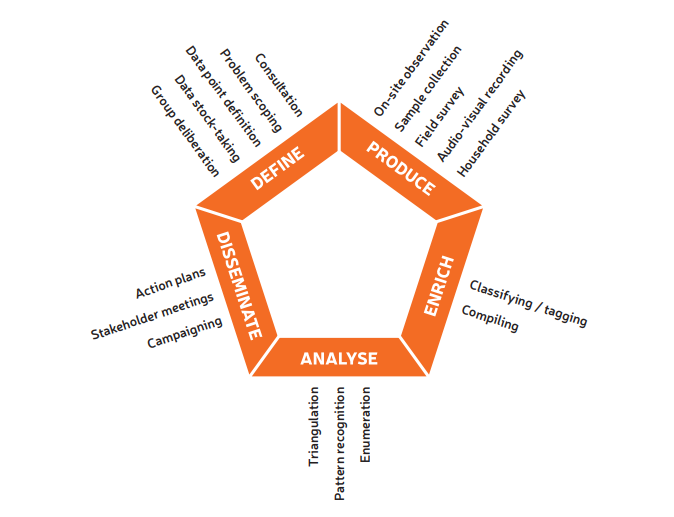We are pleased to announce the launch of our latest report Advancing Sustainability Together? Citizen-Generated Data and the Sustainable Development Goals. The research is the result of a collaboration with King’s College London, Public Data Lab and the Global Partnership for Sustainable Development Data.

Citizen-generated data (CGD) expands what gets measured, how, and for what purpose. As the collection and engagement with CGD increases in relevance and visibility, public institutions can learn from existing initiatives about what CGD initiatives do, how they enable different forms of sense-making and how this may further progress around the Sustainable Development Goals.
Our report, as well as a guide for governments (find the layouted version here, as well as a living document here) shall help start conversations around the different approaches of doing and organising CGD. When CGD becomes good enough depends on the purpose it is used for but also how CGD is situated in relation to other data.
As our work wishes to be illustrative rather than comprehensive, we started with a list of over 230 projects that were associated with the term “citizen-generated data” on Google Search, using an approach known as “search as research” (Rogers, 2013). Outgoing from this list, we developed case studies on a range of prominent CGD examples.
The report identifies several benefits CGD can bring for implementing and monitoring the SDGs, underlining the importance for public institutions to further support these initiatives.

Key findings:
- Dealing with data is usually much more than ‘just producing’ data. CGD initiatives open up new types of relationships between individuals, civil society and public institutions. This includes local development and educational programmes, community outreach, and collaborative strategies for monitoring, auditing, planning and decision-making.
- Generating data takes many shapes, from collecting new data in the field, to compiling, annotating, and structuring existing data to enable new ways of seeing things through data. Accessing and working with existing (government) data is often an important enabling condition for CGD initiatives to start in the first place.
- CGD initiatives can help gathering data in regions otherwise not reachable. Some CGD approaches may provide updated and detailed data at lower costs and faster than official data collections.
- Beyond filling data gaps, official measurements can be expanded, complemented, or cross-verified. This includes pattern and trend identification and the creation of baseline indicators for further research. CGD can help governments detect anomalies, test the accuracy of existing monitoring processes, understand the context around phenomena, and initiate its own follow-up data collections.
- CGD can inform several actions to achieve the SDGs. Beyond education, community engagement and community-based problem solving, this includes baseline research, planning and strategy development, allocation and coordination of public and private programs, as well as improvement to public services.
- CGD must be ‘good enough’ for different (and varying) purposes. Governments already develop pragmatic ways to negotiate and assess the usefulness of data for a specific task. CGD may be particularly useful when agencies have a clear remit or responsibility to manage a problem.
- Data quality can be comparable to official data collections, provided tasks are sufficiently easy to conduct, tool quality is high enough, and sufficient training, resources and quality assurance are provided.
You can find the full report as well as a summary report here. If you are interested in learning more about citizen-generated data, and how to engage with it, we have prepared a guide for everyone interested in engaging with CGD.
In addition to our report we have gathered a list of more than 200 organisations, programs, and projects working on CGD. This list is open for everyone to contribute further examples of CGD. We have also prepared our raw dataset of “citizen generated data” according to Google searches accessible on figshare.
If you are interested reading more about the academic discourse around CGD and related fields, or would like to share your own work, here we have prepared a Zotero group with relevant literature.
This report was funded in part by a grant from the United States Department of State. The opinions, findings and conclusions stated herein are those of the author[s] and do not necessarily reflect those of the United States Department of State.
Danny Lämmerhirt works on the politics of data, sociology of quantification, metrics and policy, data ethnography, collaborative data, data governance, as well as data activism. You can follow his work on Twitter at @danlammerhirt. He was research coordinator at Open Knowledge Foundation.








